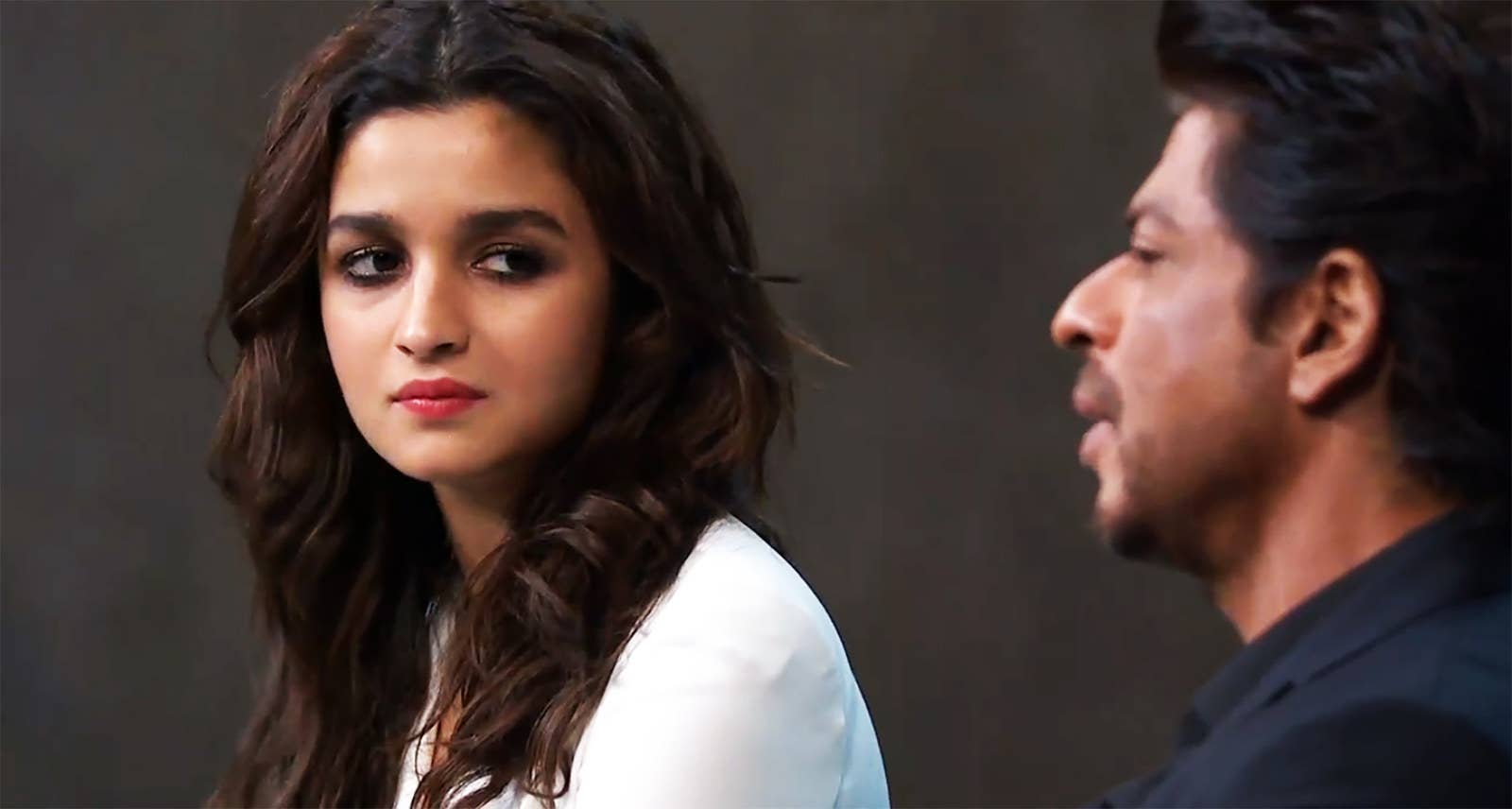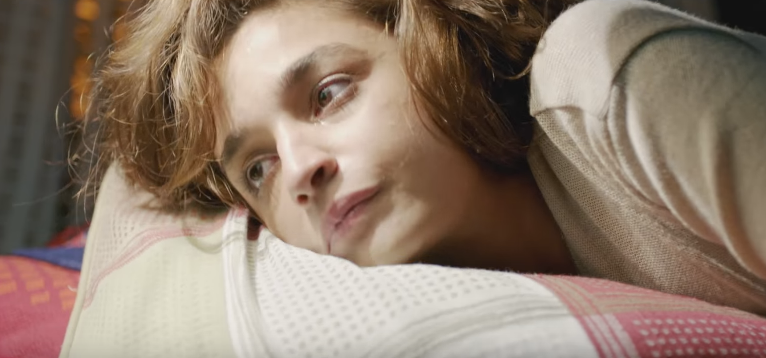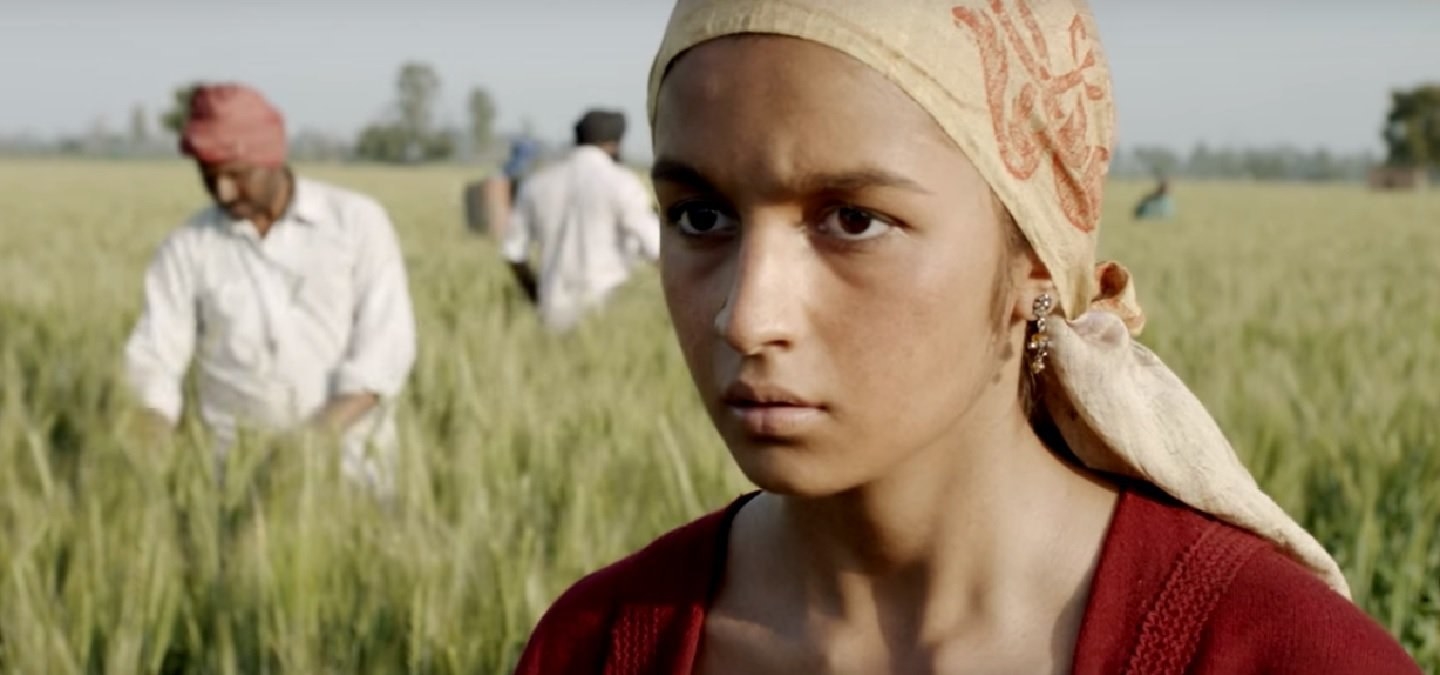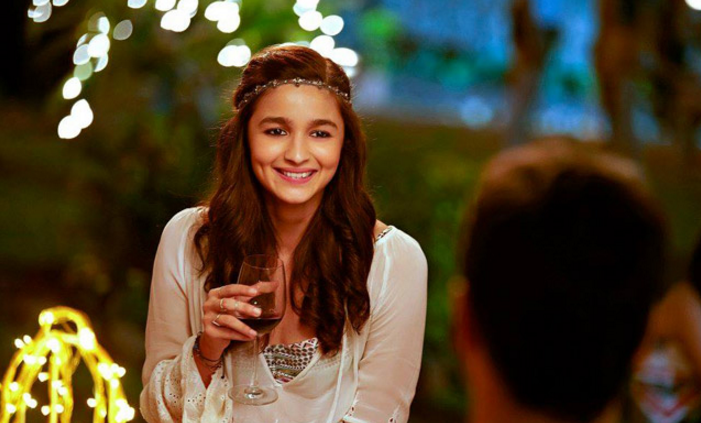
“She’s too good too soon,” Shah Rukh Khan says. Next to him, 23-year-old Alia Bhatt is poker-faced.
Khan, who’s been acting in Bollywood movies for a year longer than Bhatt has been alive, is giving her advice. Karan Johar listens intently from an armchair across from them.
“I don’t want her to get trapped in just doing great acting.”
“I don’t want her to get trapped in just doing great acting,” Shah Rukh continues. “If you get too good too soon, you may have inhibitions being bad at times.”
“Bad,” he clarifies, refers to Switzerland and chiffon and dancing around trees.
“It’s wonderful to be bad at times, as an actor,” he insists.
Alia agrees reluctantly; Karan, readily. And for as long as I can remember, we’ve all agreed: our best-loved actors, their choices, and their movies will all be “bad at times”.
This is the dejected buy-in inherent to mainstream cinema goers in India, the tacit understanding that it’s stupid to expect it to be good too much.

Remember: this time last year, Khan was promoting Dilwale.
It was fucking awful.
(Before you furiously @ me on Twitter, please know: I love Shah Rukh Khan. This isn’t about him, shhh. And, chill, he’s bad at times.)
In a Dilwale review titled “This Movie Sucks And We’re All To Blame For Its Existence,” reviewer Suprateek Chatterjee railed against Bollywood’s “eternal ‘90s mediocrity”. He wrote:
We’re the reason these films exist. We go watch these films… We give them our money. We give them mentions on Twitter and likes on Facebook. And all of us, to some extent, have been brainwashed into coming up with justifications for this kind of filmmaking to exist. “It’s a Rohit Shetty film – what do you expect?”
He’s right.
Dilwale, that nightmare-fueling deja vu project, netted more than ₹100 crore at the box office. In 2016, that honour went to movies as variedly crappy as Shivaay and Housefull 3.
We've trained our stomachs to digest a hefty serving of shitty cinema for every decent film we get to watch.
There’s no doubt that Bollywood audiences, myself included, have trained our stomachs to digest a hefty serving of shitty cinema for every decent film we get to watch. And, in turn, filmmakers know the standard is low enough to get away with substandard fare.
It's an inescapable chicken-and-egg of shit.
And still, Alia Bhatt has never been shitty. Despite launching via cushy family connections into an industry that thrives on mediocrity and an audience that expects it, she’s only been varying degrees of good.

As an actor, Bhatt can make an audience laugh, cringe, cry, and dance on command.
Even in her worst performances – arguably Humpty Sharma Ki Dulhania, Kapoor & Sons, and Shaandaar – she’s been convincing as the characters handed to her.
When she’s a superficial brat, she’s a believable, natural superficial brat. When she’s a generic-ass manic pixie Coonoor landlord, she does a damn endearing job of it.
Her real genius is in the choosing.
And in her best performances – Highway, Udta Punjab, and Dear Zindagi – her paralysing work blows all her contemporaries, and most of her predecessors, right out of the water.
But her real genius isn’t even in the acting. It’s in the choosing.
Through the roles she’s picked, Bhatt has demonstrated unparalleled range and versatility in just four years and eight movies. We already know she can do glam urban heroine just as well as she can do dusty farm girl. Mainstream club jam dance moves just as well as sexual assault and anxiety.

And through each role, she’s stood up for progressive cause after progressive cause, each one buttoned into a big budget feature.
If pure masala frivolity – dancing around trees, chiffon, Switzerland – is “bad,” then she’s been good a whole lot.
2 States took on inter-caste marriages, dowry, and portrayed a sexually liberated unmarried woman. Highway took a lid off familial sexual assault. Shaandaar is still among the most body-positive movies Bollywood has to offer.
Just this year, Alia Bhatt has lent her stardom and skill to projects that shed light on LGBT acceptance (Kapoor & Sons); addiction, corruption and rape (Udta Punjab); and mental wellness and sex-positivity (Dear Zindagi).
Her work has stood up for progressive cause after progressive cause.
Sections of the Indian movie spectrum – indie and regional cinema – have a rich history of rooting for the marginalised. But to see similar social justice-through-art unfold in big budget commercial films, by a new-gen star child who could’ve just as easily stuck to formula ₹200 crore romantic dramedies, is heartening in the impact it promises.
The only other person in the industry with such a single-minded pursuit of overlapping commercial success, good cinema, and socially productive impact is Aamir Khan, and he developed the urge (or ability and freedom) two decades into his career.
Alia, blessedly, has at least that long ahead of her.
She’ll save the whole damn world.
